The Outer Worlds Is the Game Mass Effect and Fallout Fans Deserve
Classic PC-style RPG gameplay
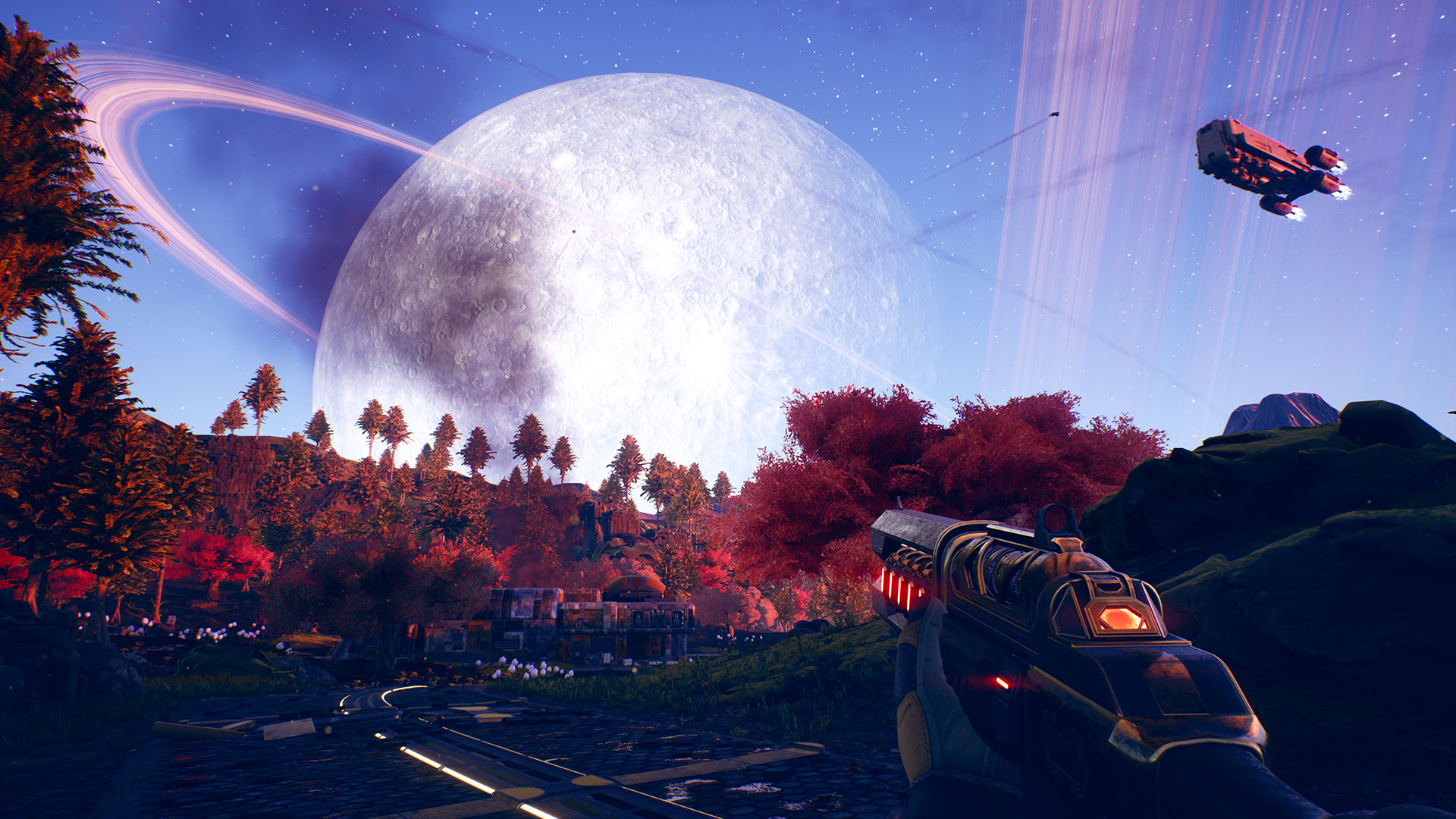
It's been a really long time since we had a great sci-fi RPG. The Mass Effect series petered out. Fallout lost its way. Deus Ex embraced style over substance, and who knows if we'll ever get another Knights of the Old Republic game? But players who prefer blasters and starships to swords and dragons can finally rest easy. The Outer Worlds from Obsidian is the game they've been waiting for.
The Outer Worlds ($60; PC, PS4, Xbox One; both standalone and via Game Pass) debuted last week, so you don't need me to tell you that the game is great. Other reviewers have already taken care of that. You've got deep, varied gameplay; you've got an affable cast of characters; you've got a colorful, interesting setting; you've got a satisfying critique of corporate capitalism.
But what's incredible about The Outer Worlds is just how different it feels from a lot of big-budget games lately. It's not trying to sell you anything with real-world money. It doesn't require any repetitive, mindless busywork to level up. And, best of all, it doesn't want your attention forever, trapped in an endless live-service loop. Once you've spent your 30-40 hours in-game, you're done. (Unless you want to replay it, which can actually be pretty fun.)
If you've read all about The Outer Worlds and are still on the fence about it, here are a few things about the game that I adore — and a few that I don't, just in case they're deal-breakers for you.
(Also: I loved Mass Effect and Fallout, liked Mass Effect 2 and Fallout 2, and didn't think much of anything past those entries. So, take or leave the following opinions accordingly.)
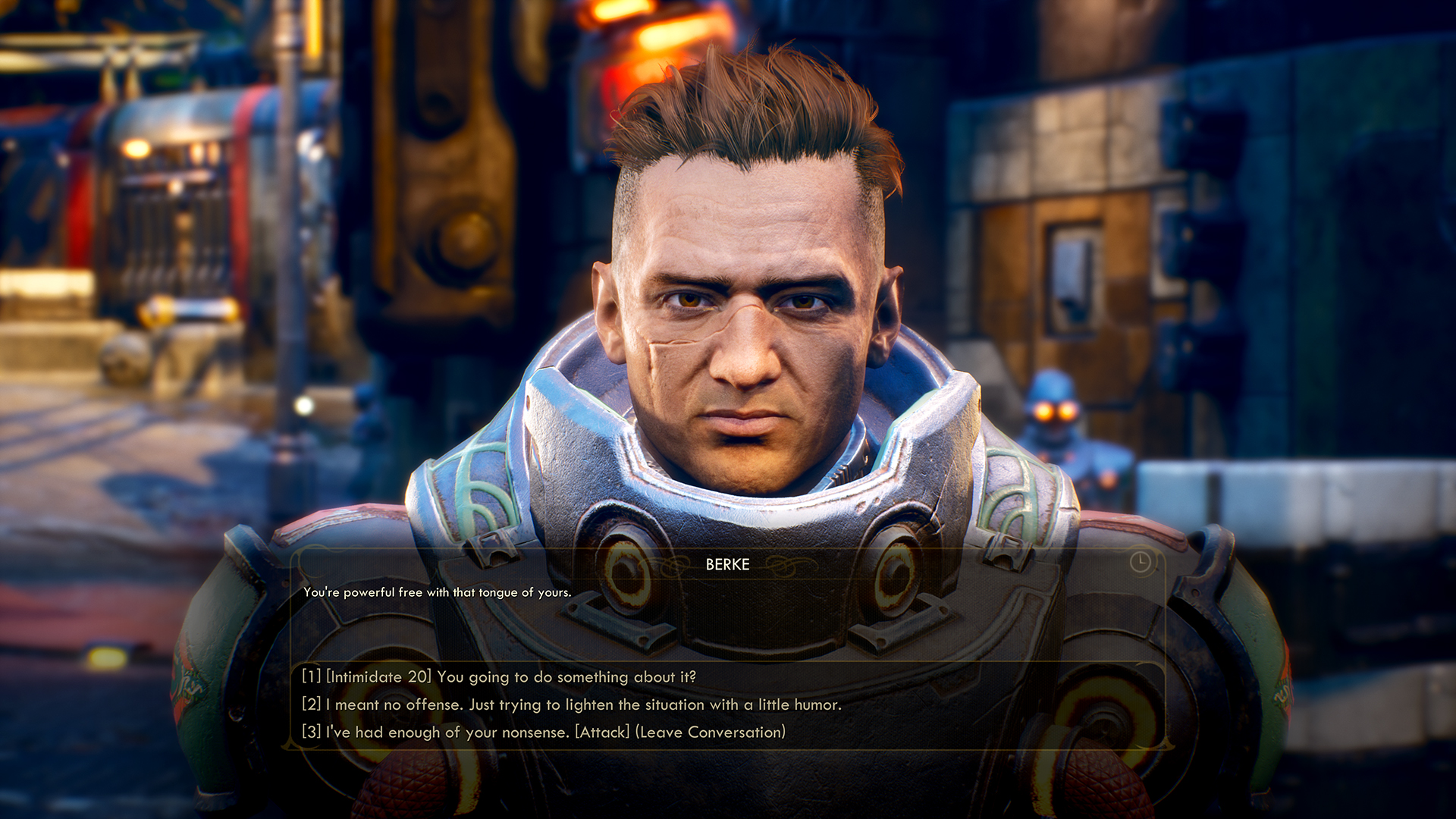
You can customize your character — a lot
Before The Outer Worlds even starts, you have to create your protagonist. Choosing sex, skin tone, eyebrow height — it's a pretty deep character creator, but lots of other games have similar setups. But then, you start choosing your skills and attributes. And if you're so inclined, you can go pretty deep into these before you ever take your first steps into Halcyon.
First, you'll have to choose your favored attributes among Strength, Dexterity, Intelligence, Perception, Charm and Temperament. Each one affects your skills, as well as secondary characteristics, such as melee weapon damage or health regeneration. There is no "optimal" character build, because every attribute can theoretically be helpful to any playstyle. It's really about what matters to you more — weapon speed or critical hit frequency, for example.
Past that, there are seven skills, like Melee and Ranged, each of which has two or three sub-skills, like one-handed weapons or handguns. As you level up, you'll be able to improve your skills, as well as select Perks, which can improve your health, skill recharge time or cohesion with your party. It's almost inconceivable for two people to make the same Outer Worlds character, and since both combat and noncombat skills are vital to success, there's no "wrong" way to build a character.
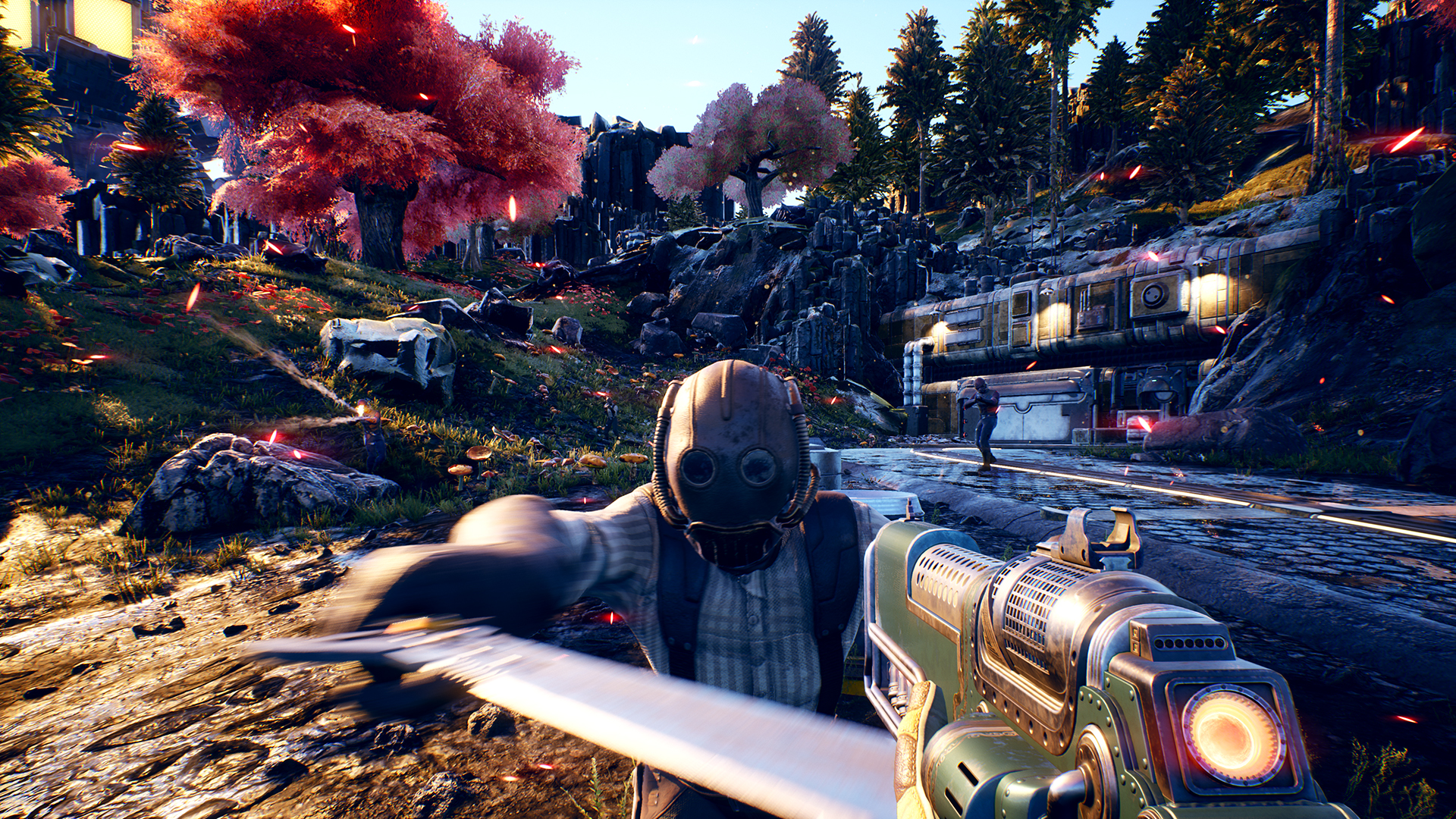
Your companions feel integral to the world
In a lot of RPGs, your party members are basically just there to soak up and dish out damage in combat. Your companions in The Outer Worlds can definitely do this, but they've also got a lot more going for them. Many of them join as part of the main story, meaning they drive the plot forward. They also have long-running quests that advance their own personal narratives. Granted, those are both pretty standard in other games as well.
What sets them apart from most RPG party members is how much you can lean on them, both in and out of combat. If you're so inclined, you can invest in a skill called Leadership, which improves your team cohesion and how often your party members can use their special skills. They can also invest in perks that confer their conversational and environmental skills on you (Persuade or Engineering, for example). In fact, your character doesn't have to be particularly good at anything — with the right skills, your party members will pick up all the slack.
Just be aware that while you can develop deep relationships with all of your companions, you can't romance any of them. Fans who are sick of the "if we have three conversations, we're in love" approach from similar might see this as a breath of fresh air. But I admit, I missed the opportunity to find love while adventuring out in the cosmos.
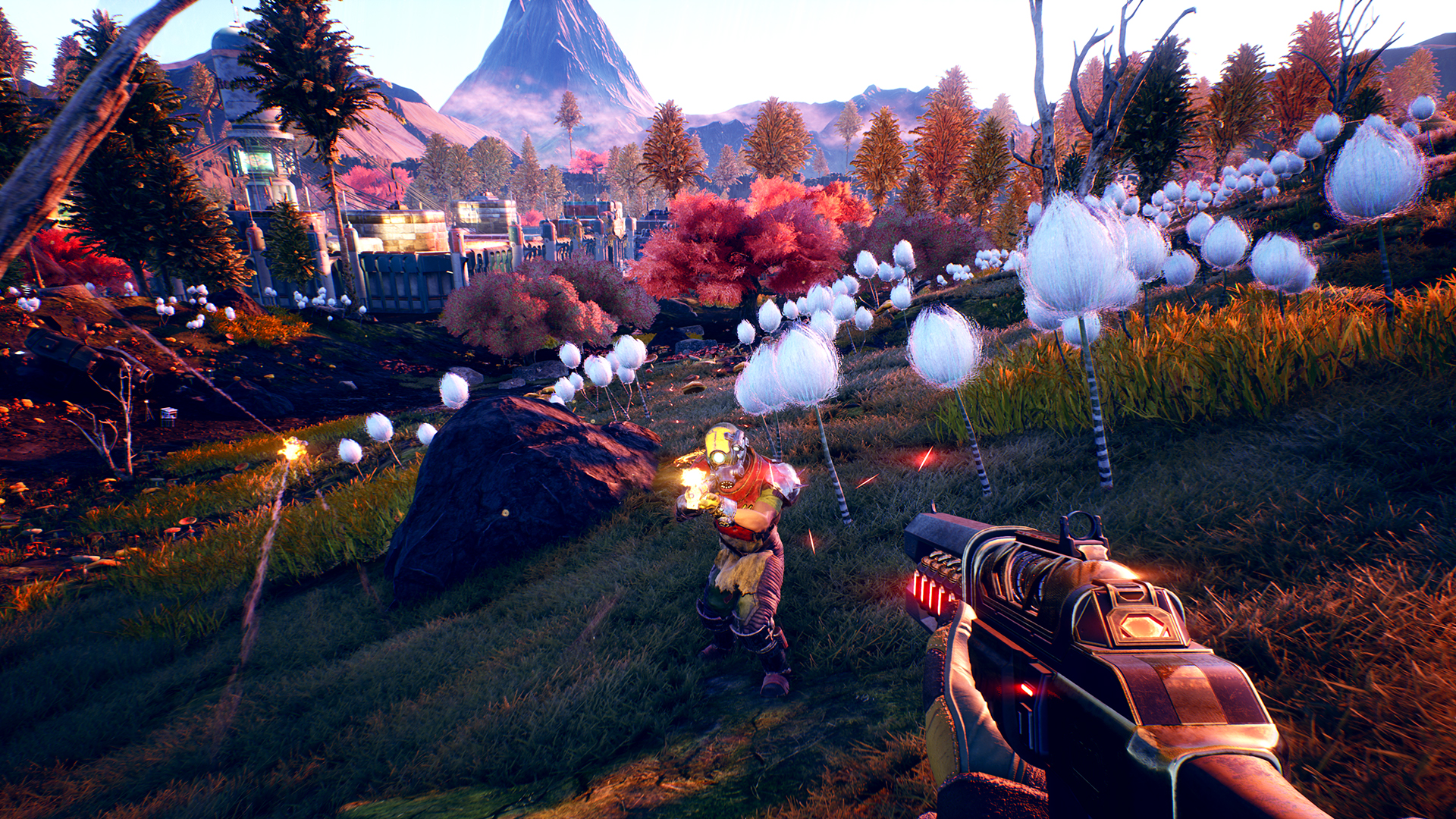
Combat feels great (sort of)
There are lots of ways to dispatch your foes in The Outer Worlds. (It's also worth mentioning that there are a lot of ways you don't have to dispatch your foes, too. You can approach quests in a variety of different ways, and talking/hacking/stealthing through the problem is a viable solution more often than not.) You can pick up swords, pistols, assault rifles, stun batons, grenade launchers and anything else you come across, then batter any enemies who won't listen to diplomacy (or intimidation) into submission.
If you go with ranged weapons, the combat feels as good as any first-person shooter. As you improve your skills, you'll be able to do more damage, as well as dish out special attacks. You can take advantage of the environment, too, to keep your distance and duck behind cover. You can also slow down time so you can target enemies' weak points. Shooting at the head may blind a foe, while shooting at the legs can slow them down. Companion abilities can also help turn the tide, and you can even activate them more often, depending on your Leadership skills.
However, combat is a bit more of a mixed bag if you play a melee class. Melee isn't inherently worse than ranged combat, to be fair. You never need to worry about ammo, your aim doesn't have to be particularly good and you can avoid ranged attacks more easily.
On the other hand, you also take a lot of damage while closing the distance between you and your foes, and blocking doesn't help that much unless you invest a ton of points in it. A melee character requires either a very specialized build, or a tolerance for taking a lot of damage, at least early on. It can also be a little dizzying trying to find and track enemies on the battlefield in a first-person melee mode.
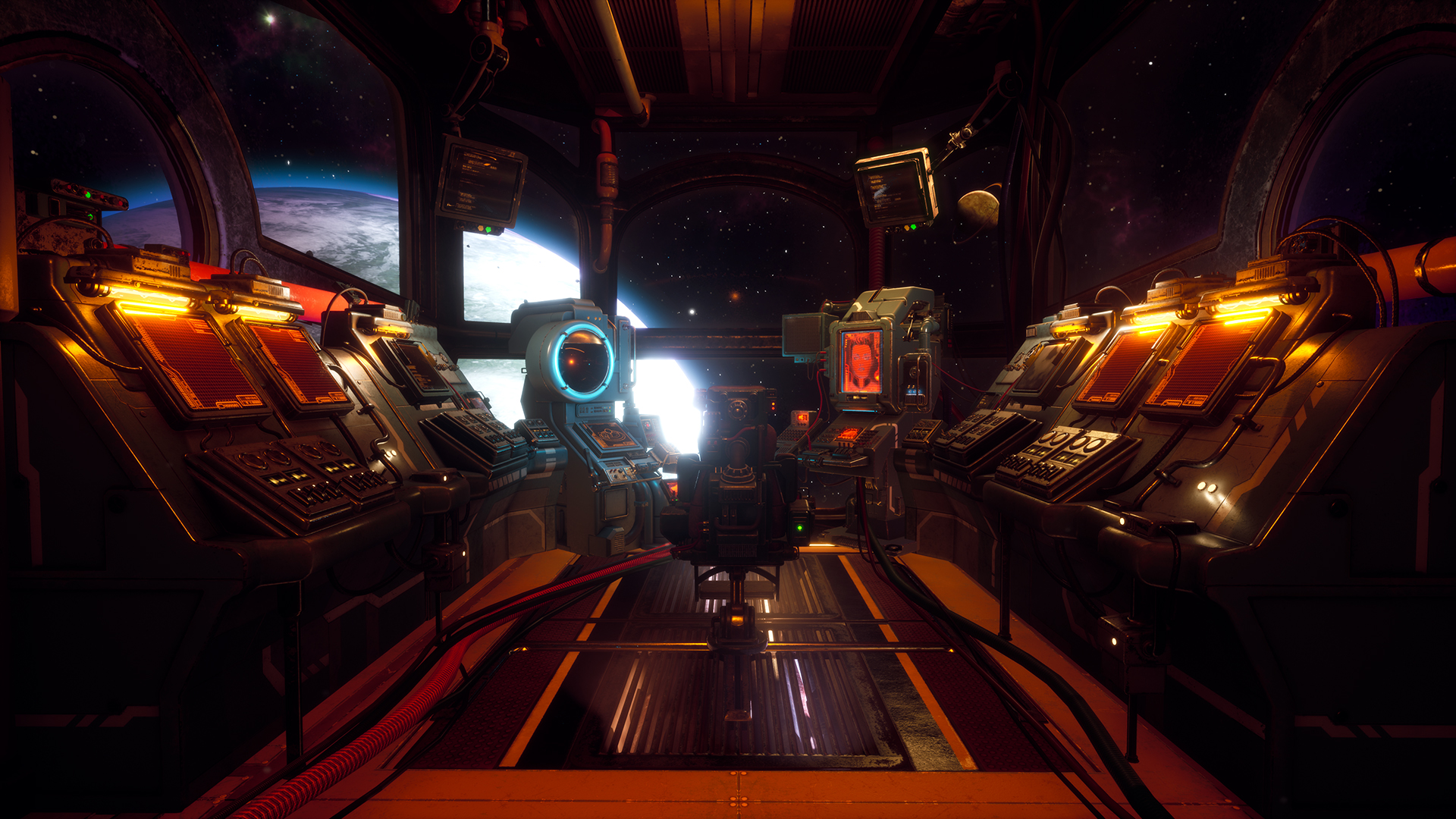
There's lots to explore (and lots to miss)
In The Outer Worlds, you'll travel to a variety of different planets, and find tons of interesting things along the way. From quests, to weapons, to companion characters, to interesting lore hidden away in computer terminals and notepads, Obsidian has stuffed The Outer Worlds to the gills with interesting stuff.
And, as such, you're probably not going to find it all unless you play the game while glued to a walkthrough (which, to be honest, saps a lot of spontaneity and joy from the experience). When you come across a new area — perhaps a multitiered city with tons of hidden nooks and crannies to explore — you may not find every quest unless you scour every room and talk to every NPC with a name. Or, you may find that there's nothing there until you complete some additional quests first. It's hard to tell.
This won't annoy everyone, granted. Old-school RPG fans are aware they'll never see everything in a single playthrough. But for those of us who come from the era of exclamation points over quest-givers' heads and question marks on unexplored maps, exploration can feel a little aimless — particularly since side quests are one of the best ways to earn XP in the game, and gaining even a single level can make an impossible quest feel doable.
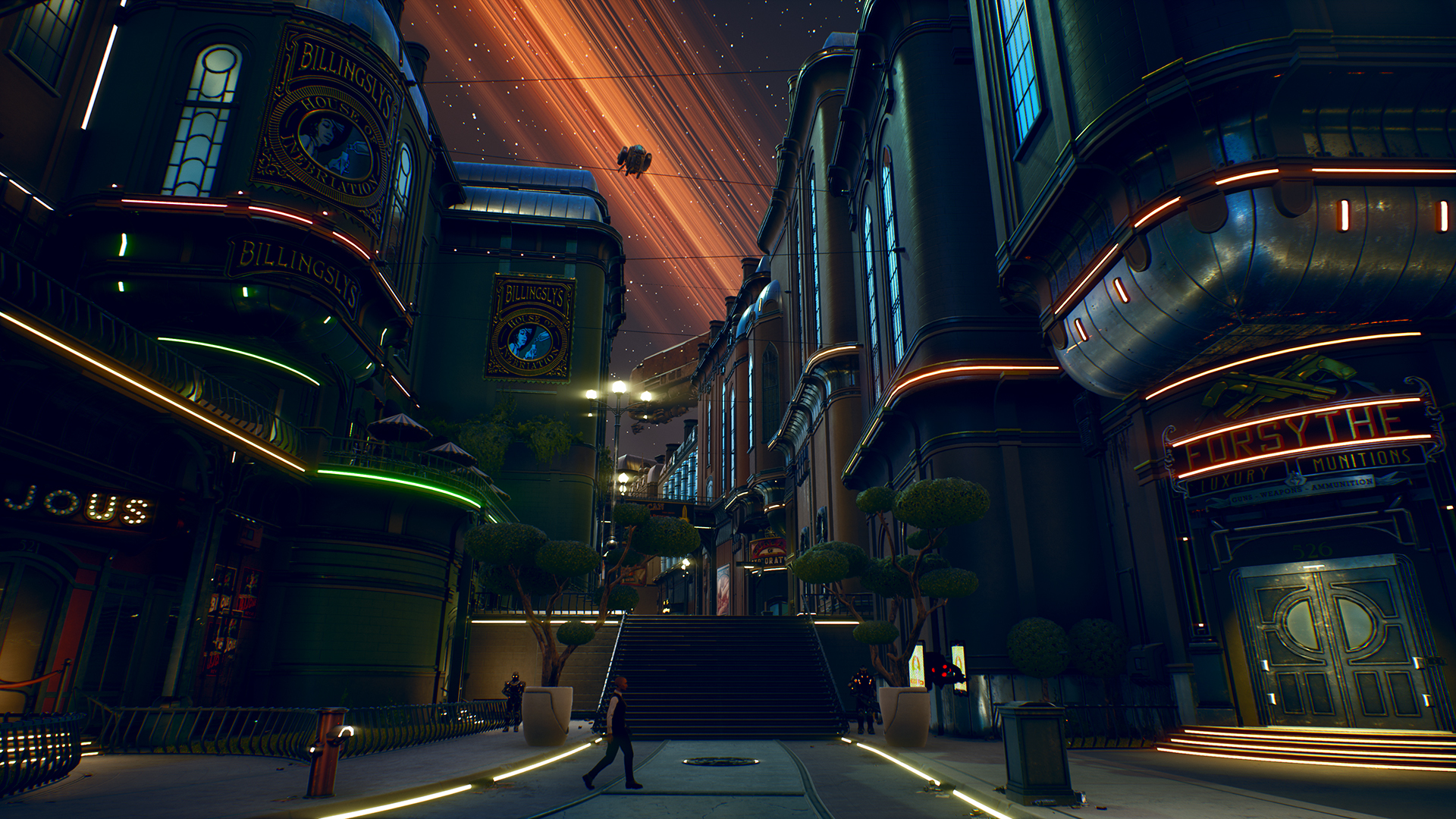
Bottom line
After I saw The Outer Worlds at E3, I figured it'd be yet another too-big-for-its-own-good RPG that I could safely skip. But I misjudged the game. It's tight, creative and hearkens back to some of the best RPG design of yesteryear. That's hardly surprising, since Tim Cain and Leonard Boyarsky, the creators of the Fallout series, directed The Outer Worlds.
The game isn't perfect, but it's still one of the more compulsively playable titles I've come across in a while, and one that will almost certainly come up in Game of the Year discussions next month. Pick it up now — or next year when it comes to Nintendo Switch or Steam, if you absolutely, positively cannot stomach using the Epic Games Store.
Sign up to get the BEST of Tom's Guide direct to your inbox.
Get instant access to breaking news, the hottest reviews, great deals and helpful tips.
Marshall Honorof is a senior editor for Tom's Guide, overseeing the site's coverage of gaming hardware and software. He comes from a science writing background, having studied paleomammalogy, biological anthropology, and the history of science and technology. After hours, you can find him practicing taekwondo or doing deep dives on classic sci-fi.

